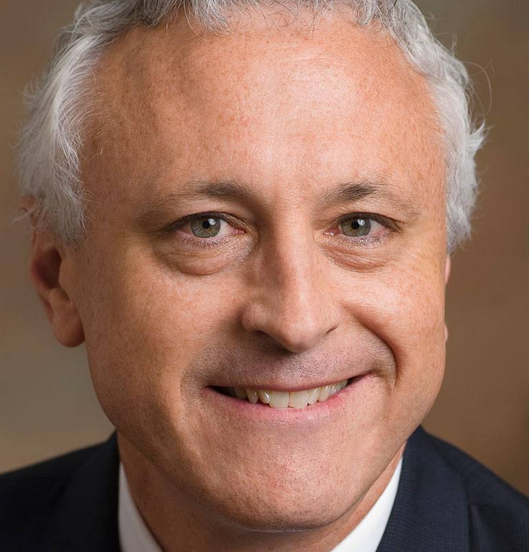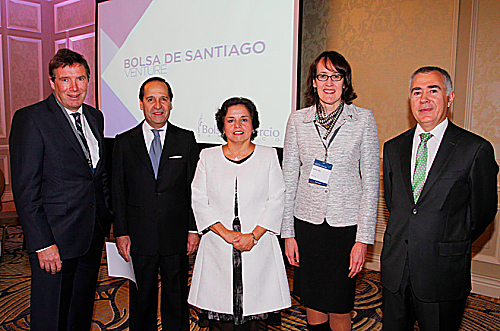Further Stimulus from Bank of Japan and Government Pension Investment Fund Supportive of Stock Prices in the Near Term
| By Fórmate a Fondo | 0 Comentarios

“Further stimulus from Bank of Japan and Government Pension Investment Fund (GPIF) supportive of stock prices in the near term”, points out Kwok Chern Yeh, Head of Investment Management, Japan at Aberdeen Investment Management K.K. (an affiliate of Aberdeen Asset Management Asia Limited) in this interview.
Is Abenomic working?
So far, the benefits of ‘Abenomics’ have largely been confined to impressive gains in asset prices. This wealth effect has not trickled down to the average Japanese – prices have outpaced wage gains, while job creation has been limited to part-time employment with minimal benefits. Companies remain unconvinced of the need to raise basic wages and capital spending. Nonetheless, an ever tighter labor market means that salaries could go up at a modest pace. Meanwhile, the weakening of the yen via monetary easing from the Bank of Japan has not boosted exports as hoped for. Prime minister Shinzo Abe has a fresh mandate after a victory in last December’s snap elections. However, the jury is out on his ability to deliver on tough reforms in the face of entrenched interests. He has made little progress in overhauling the rigid labor market or in opening up Japan’s uncompetitive industries.
Will Japan, Inc. invest more at home now because of the weaker yen?
While a cheaper currency makes it more cost-effective for companies with overseas revenues to invest domestically, we believe many are unlikely to do so. Firstly, many large corporations – and their suppliers – have moved production offshore to take advantage of cheaper labor costs and to be closer to growth markets. A weaker yen would not justify shifting production back home, especially when demographic trends have not improved.
Secondly, Japan has yet to solve the problem of its long-term energy needs. Its nuclear plants remain shuttered after the Fukushima disaster. While falling global oil prices offer a welcome respite, cheap energy is the exception rather than the rule.
Will a corporate tax cut make a difference?
The Abe administration has proposed a 2.5 percentage point cut to the corporate tax rate, which is expected to take effect in April this year. While that could encourage private investment, the plain fact is that very few companies pay the top rate of tax and 70% of them pay no tax at all!
What’s the outlook for Japan equities?
The Topix index rose 8.1% in local currency terms in 2014, although returns were negative in U.S. dollar terms. Further stimulus from the Bank of Japan and the decision by the country’s pension fund Government Pension Investment Fund (GPIF) to buy more stocks should be good for share prices, at least in the short term. Stocks are fairly valued, trading at forward multiples of around 15 times for Financial Year 2015.
Meanwhile, corporate earnings are expected to grow at a healthy pace, aided partly by the weaker yen – which raises the value of repatriated earnings for companies with overseas revenues – and a one-off boost from falling oil prices. The better use of company cash, in the form of share buybacks and dividends is also supportive of stock prices.
Are you encouraged by recent initiatives to improve corporate governance?
Yes. Corporate governance is improving, albeit slowly and from a low base. Japan has adopted the Stewardship Code, which urges investors to engage management more effectively. Aberdeen was one of the signatories of the code.
Tell us about the portfolio’s exposure to the automation sector.
In light of rising costs in manufacturing hubs such as China demand for factory automation is increasing. Japan is home to some excellent companies, including Fanuc, the world’s largest robot-maker and a leading producer of computer numerical controls.
Keyence, a leading provider of sensing and measuring solutions in factory automation is another name we hold. Another example would be Nabtesco, a producer of precision reduction gears, a key component used in robots.
You seem to favor the consumer goods sector too. Why?
This sector offers a broad range of companies including global automakers Toyota and Honda, Japan Tobacco, a company with a strong track record not only in Japan but
also in Eastern Europe, the Middle East and Africa and baby product-makers Unicharm (nappies) and Pigeon (baby bottles) which are benefiting from growing affluence across Asia.
Name the standout performers in your model portfolio.
Stocks that have done well include medical equipment manufacturer Sysmex and Unicharm, a leading maker of feminine care products and disposable baby diapers. Sysmex’s share price was supported by the strength in its hematology business. The launch of a cell- analysis product in the U.S. fuelled expectations of further gains in its market share. Unicharm’s share price rose 55% in local currency terms in the year to end December on signs of a recovery in its China business. At the other end, the share prices of Japan Tobacco and power- tools maker Makita Corp came under pressure on the back of concerns over their exposure to the Russian market.
What about the small cap portfolio?
Nippon Paint and sports gear maker Asics delivered robust gains in our view. Nippon Paint’s stock price rose following a move to consolidate its joint-ventures across Asia. The paint maker is also expected to benefit from a dip in crude oil prices, a key ingredient for solvent and resin paints.
The share price of Asics went up after it posted solid sales growth and upgraded its full-year earnings guidance. At the other end, property leasor Daibiru’s share price came under pressure after a strong run. Concerns over a tepid recovery in the Osaka market also weighed on sentiment.
What are the advantages of investing in small cap stocks in Japan?
We believe smaller companies tend to be under-researched, and because of their size, have more potential for growth than larger companies. In Japan these differences are magnified: research coverage is often thin – benefiting active managers like us who do our own due diligence – while headline growth rates are often stronger. To us, they’re just as well run as the larger companies, boast robust balance sheets, and many of them are global leaders in their particular fields. We invest in just under 40 companies in our smaller companies portfolio, ranging from consumer names that are domestic and global, to industrial companies that are part of the global supply chain. In our view, smaller companies in Japan have actually outperformed their large cap counterparts in the longer term, although periods of mispricing and illiquidity mean investors must be patient.









